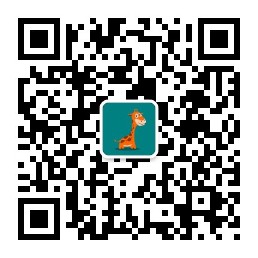第451期:job security 职业安全感
最近很多大公司都传出了裁员的消息,佛老所在的公司也不例外。一时间人心惶惶,好不凄凉。
这正是:
忙日苦多闲日少,乱红飞过秋千去。
自在飞花轻似梦,细看来,不是杨花,点点是离人泪。
互拼乱凑了这么几句定场诗,咱们今天不讲单词,来聊聊 job security这个话题。
What is job security?
Job security is the assurance that you will be able to work in your job as long as you please and will not become unemployed.
这年头,不知还有多少人敢拍着胸脯说自己有job security的?
Business Insider上周有篇文章:The 10 best industries for job security (职业安全感最高的10个行业)
作者根据美国劳工部公布的数据统计出了过去今年中雇佣增长最高、员工流失率最低的十大行业。这十个行业是:
-
Employment in hospitals grew 9.5% over the last five years
-
The professional and technical services industry, which includes a variety of highly trained professional activities including legal advice and scientific research
-
The plastics and rubber products manufacturing industry
-
The nonmetallic mineral products industry (which makes products out of materials like sand and stone, including glass)
-
The social assistance industry, which provides social services like personal home assistance and child care
-
The transportation-equipment manufacturing sector, which includes motor vehicle, train, aerospace, and ship manufacturing
-
The transportation and warehousing sector
-
The construction industry
-
The waste management and remediation services industry
-
The utilities sector, which covers electrical power, natural gas, and water and sewer systems
*以上结论仅指美国
今天在Forbes上读到一篇文章。起因是一个刚失业的读者(Gus)给福布斯杂志写了封信。信不长,贴在这里。
I worked for a government agency for twenty years. Then there was a reorganization and I got laid off.
I never expected to lose that job. It really threw me. I was out of
work for six months. I got a new job and I worked there for two years,
but it was a private company and the owner retired.
His son sold the company, so I’m job-hunting again.
Above all I’m looking for a stable situation. How can I find a job
with maximum job security? I have a lot of years left to work.
信是写给Forbes的一位特约撰稿人(Liz Ryan)的。Liz是资深人力资源专家,她的linkedIn账号是:https://www.linkedin.com/in/lizryan,有兴趣的读者可以follow her.
收到这封信后,回复了这位读者。这封信有点长,但写得很诚恳,很有内容,不是敷衍了事的读者回信。我读了这封信颇有些感悟和触动。
*原信发布于:https://www.forbes.com/sites/lizryan/2018/01/21/the-secret-to-job-security-2/#6fea7a3b533a
Dear Gus,
If I could refer you to an employer that would hire you now and guarantee you employment for the next twenty-five or thirty years, I would. However, there’s no such employer.
You found out through harsh experience that traditionally-secure government jobs are not guaranteed for life any more than private sector jobs are. Beyond that, taking a job for its perceived level of security is a risky move.
Often the jobs we associate with the highest levels of job security are the jobs that will prepare you the least to contend with the new-millennium reality: we are all entrepreneurs now.
We have to bob and weave. We have to know our markets and our value and the kind of pain we solve, and these are things traditionally “secure” jobs seldom require us to know.
The secret to job security in 2018 and beyond is to remember that we build our own security and carry it around with us. No employer can assure you lifetime employment anymore. No private company can. No public employer can.
Even the Vatican had layoffs a few years ago. Any job security you will accumulate will be yours alone. It won’t have anything to do with the particular organization you happen to work for right now, or in the future.
Your priority now — and the same goes for all of us — is to focus on being employable, not staying employed. Jobs will come and go. You’ll lose one job (or leave on your own) and find another one quickly. How? Because you know the market, and people know you.
To build your marketability and thus your security, your assignment is to begin cultivating these ten skills:
1. You will not think of yourself as a bundle of certifications and years of experience. Like any professional — a lawyer, a plumber, a home-and-office organizer or an insurance agent — you will know what kind of pain you solve for your clients. You will know a lot about that pain.
You will know what the pain you solve costs clients, how it shows up and most of all, how to relieve it.
Maybe you solve unhappy-customer pain or outdated-and-cumbersome-process pain. Maybe you fix broken IT infrastructure or build more nimble supply chains. Whatever the pain is, you have to know its name — and the remedies for it.
2. You will stay close to the marketplace to understand how the pain you relieve is morphing and changing over time. The more hidden away you are from the world outside your office walls, the harder it will be to stay close to the talent market and make sure you always have a bead on the pain you solve and its causes and remedies.
That’s why entrepreneurs and contract employees have an edge over full-time salaried workers. They are always interacting with the talent market — always negotiating, always talking about problems and solutions and always solving concrete problems for real customers. They are comfortable with rapid changes — the way we all need to be!
3. You will know your value. It’s not sufficient anymore to say “My last job paid me $70,000.” That isn’t especially useful information to a hiring manager who is considering hiring you. They may think “That’s great, but this role is a $60,000 role.”
Can you show them how your work will produce enough new revenue or save enough money in expenses to justify your salary? You must be able to do that, over and over again as you continue on your path.
4. You will keep an eye on the talent market and the need for your services, even when you’re happily employed. You can’t go to sleep on your career — but most working people do.
They go into a happy Rip Van Winkle nap for ten or twenty years. Then one day the chair they are sleeping on is kicked out from under them! Don’t be that person. Stay awake and continue reading job ads, even when you’re working.
5. You will keep your skills up to date with the market. You may work for an organization that is behind the times. Their technology is old. That works for them — but it doesn’t work for you!
Whether your employer cares about your development or not — and whether or not they pay for it — you have to keep your skills current if you want to be employable.
6. You will keep your network active. Many if not most people don’t network much when they are working. They only network when they’re between jobs. That’s a huge mistake.
Your network must be robust and vibrant, meaning you have to get out and see people, one on one or in group settings (or both).
If you’re new to networking, shoot for one face-to-face get-together with a new or old friend every week, and try to attend one group networking event per month. Bring a friend to networking events if you don’t want to go by yourself.
Get used to talking to new people. You will be very glad you did!
7. You will become very good at something that not everybody can do. Think about what that something could be. You could become an expert on educational software, or hiring ex-military service members or converting print magazines to online magazines.
You have to get good at something specific — no matter how many other things you are good at, and I’m sure there are tons of them — to command your true market value today.
8. Because you understand what kind of pain you relieve for your employers and clients and because you know your value, you’ll become a part-time or full-time consultant, either just during your job search or in general.
We are all consultants now, whether we know it or not. Nothing will grow your muscles and your marketability like branding yourself as a consultant rather than a needy job-seeker. People who look for work have a huge advantage over people who can only imagine accepting a full-time job offer with benefits.
9. As your mojo grows, you will become known for your excellent work and professionalism. People you know or who know of you will refer you to projects. They could be full-time positions or contract or consulting gigs. You’ll gain a reputation among a larger group than the people who know you today. Your network will help you stay employed.
You’ll charge enough for your projects that you won’t panic when you go a few months between assignments. You’ll save enough of your income to cover those periods.
10. Eventually you’ll reach a point where you will be okay whether you work at all this month, or not. You won’t be stressed about it. That’s the nirvana state!
You will not get there by looking for a job that you hope will carry you through to retirement.
That’s a fool’s errand, as the expression goes.
Forget about security in any one job, and build the kind of security no one can take from you — the kind you create in yourself!
All the best,
Liz
不知大家读完这封信有什么感想?
世界上没有完全稳定的工作,只有你身上的技能、知识和能力是追随你一辈子的。如Liz所说的那样: Any job security you
will accumulate will be yours alone. It won’t have anything to do with
the particular organization you happen to work for right now, or in the
future.
很多人还在幻想找到一份dream job时,裁员潮就汹涌而来了。我在想,世界上真的有dream job这回事吗?我愈发doubt it了。





